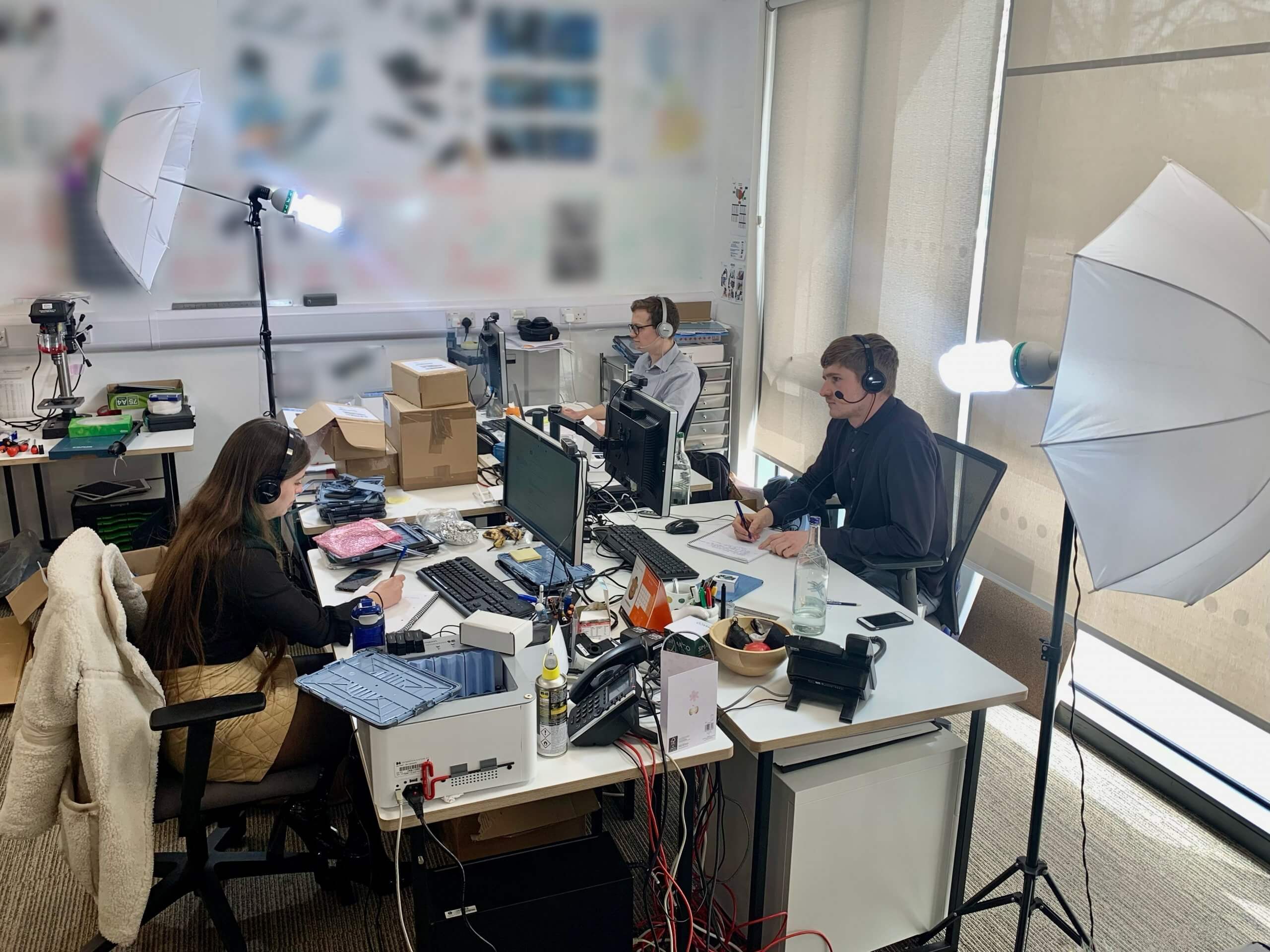March 26th 2021 marked the first day of the Design Sprint Challenge in collaboration with Nottingham Trent University, UCL Partners and Nursing Researchers from Anglia Ruskin.
A Design Sprint is a way of creating new ideas and developing a solution for a challenge. It is usually a five day process involving design, prototyping and testing ideas. It can shortcut and compress what may usually be months of designing into just a single week.
On Monday, you create a map of the problem. On Tuesday, each individual sketches solutions. Wednesday, the group decides which sketches are the strongest. On Thursday, the team builds a realistic prototype which is then tested with target customers on Friday. Henry Sears, Product Design Student, explained how he ‘enjoyed the design sprint in how it forced you to come up with ideas in a narrow time window. I think this led to producing more organic or ‘original’ design concepts and developments.’
Some claimed uses of the approach include; launching a new product, adding new features to a digital product and opportunities for improvement of a product. Lauren Rushen, Design Lead at FutureNova, explains how we have used the sprint technique ourselves- ‘we have utilised the Sprint process to make decisions on the company’s design language and branding.’
Lauren continues ‘Our Sprint with NTU posed the challenge of ‘improving the way that healthcare professionals deliver care in their day to day activities.” 140 students, who worked in 16 groups over 5 days first had the opportunity to be a part of a focus group with clinical staff from UCL Partners and Anglia Ruskin University. Lauren described how ‘this allowed the students to immerse into the daily life of healthcare professionals, and help to justify their area of problem selection.’
After a week of working in teams made up of both first and second year product design students, the second year students continued on individually to take their projects in their own direction. Our product design team at FutureNova met with them weekly to assist them into developing their projects to the best they can be. Alex Harwood, a 2nd Year Product Design student said ‘The design sprint was a really great experience that taught us to make critical decisions and solve problems quickly. The continual feedback and close interaction with professionals in the medical field and the FutureNova team was very valuable, allowing us to get a collection of perspectives to adapt and move our project on quickly and positively.’ She plans to still use the sprint process in her future work and hopes it will influence how she views and approaches problems.
Lauren explained that ‘Through our role as the stakeholder, the students presented their concepts to us, alongside the clinical staff. We saw some very interesting prototypes from the groups – ranging from voice dictation devices (group 9), UV sterilisation systems (group 6), mattresses measuring patient vitals (group 10), waiting room check in systems (group 8) and blood carrying devices (group 7). The Design Team and I attended weekly sessions to give feedback, as the students developed their concepts from prototype to DFM ready CAD. Their final marketing pack was presented to us with some impressive renders and animations.’
Priten Chauhan, a 2nd year NTU Product Design student told us that ‘the design sprint was a fun yet challenging experience. We were able to develop our skills working collaboratively through digital platforms ensuring we met deadlines, considered the users environment and solve the problem at hand. Our team thoroughly enjoyed working with FutureNova and would like to thank the team for their support and feedback throughout the process.’
Karen Winfield, who played a big part in the organisation of the design sprint stated that ‘FutureNova has been instrumental in the success of a 5 day Design Sprint Challenge, working alongside our tutor team and our 140 BSC Product Design students at NTU. The project has been a huge success, due to the collaboration of the team of FutureNova, the generous support from UCL partners and the engagement of focus groups from Anglia Ruskin University. I look forward to further collaborations in the future.’
Lauren, along with Jim Gibbs and Harry McLachlan, who make up the design team at FutureNova, would like to congratulate their two winning students, Tom Beaumont and Oscar Robinson. The two students have been awarded Deliveroo vouchers on behalf of Mike Casey, FutureNova CEO.
Tom developed ‘Cradle’, which aimed to improve the efficiency of data recorded for nurses working in neonatal transition wards, through a non-invasive method of vital data collection, a low-cost smart mattress topper designed to fit existing NHS cots. The design team at FutureNova were impressed with Tom’s presentation of the internal elements of his design, as well as his rendering and animation skills. Oscar designed an ‘express check-in’ machine, aiming to reduce A&E waiting times by giving patients a QR wristband. The QR link allows patients to fill out their details, connecting to an algorithm which prioritises the triage process. The team were pleased with Oscar’s in-depth breakdown of the mechanical system in his product.
Written by Jessica Broughton Shaw

